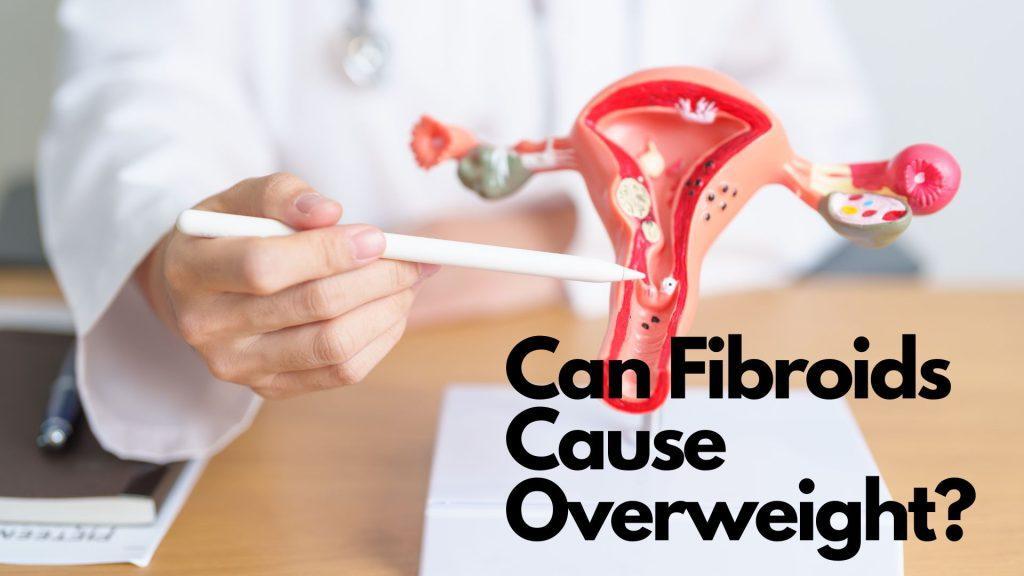
When fibroids, which are benign tumors of the uterus, grow, they can interfere with a woman’s health. What are the different types of fibroids? fibroids can help cause weight gain or making it more difficult to maintain a healthy weight. In this blog, we will discuss the association of fibroids with weight gain, symptoms, treatments and how to manage both conditions effectively.
What Are Fibroids?
Fibroids are nonmalignant growths that grow in or around the uterus. They can be tiny, the size of a seed, or the size of a grapefruit. Some women are asymptomatic, while others are in very significant pain.
Common Symptoms of Fibroids
Heavy menstrual bleeding
Pelvic pain or pressure
Frequent urination
Bloating or swelling in the lower abdomen
Back pain
Problems empting the bladder
Does Fibroids Cause Weight Gain?
Increased Abdominal Size
A large fibroid can lead to visible bloating or an enlarged abdomen that can make an individual appear overweight. Some fibroids may weigh several pounds weight which causes overall increase in weight gain.
Hormonal Imbalance
Fibroid growth is driven by hormones such as estrogen and progesterone. When there is an imbalance of hormones, the body tends to store more fat and it becomes difficult to lose weight.
Water Retention and Bloating
Fibroids can restrict digestion and cause bloating, giving a person the feeling of heaviness without actually gaining fat.
Reduced Physical Activity
Women with fibroids may feel pain, fatigue, or discomfort, making it challenging to exercise. Over time, this sedentary lifestyle can add up to gaining weight.
Emotional Eating
Managing the symptoms of fibroids is stressful. Some women use emotional eating, eating high-calorie comfort foods, and gaining weight.
How to Deal With Weight Gain Due to Fibroids
Monitor Your Diet
Then, eat foods rich in fiber such as fruits, vegetables, and whole grains.
Say no to processed foods high in sugar and unhealthy fats.
Drink plenty of water to prevent bloating.
Get To Exercise Regularly
Participate in low-impact activities such as walking, yoga and swimming.
It can also help keep metabolism up and weight in check.
Stretching can alleviate fibroid pain.
Balance Your Hormones
Avoid exposure to estrogen-like chemicals in plastics or processed foods.
Look into natural tools such as flaxseeds, green tea, and vitamin D.
Speak to your doctor about hormonal therapy options, if necessary.
Meditate or practice deep-breathing exercises.
Manage Stress
Tackle a proper amount of sleep for hormone balance.
Reach out to friends, family, or support groups.
Fibroids: Treatment Options
If fibroids are causing severe symptoms or impact your weight, medical treatment may be required. Here are some options:
Medications
Doctors may recommend hormone therapy or birth control pills to help shrink fibroids and regulate periods.
Non-Surgical Procedures
uterine fibroid embolization (UFE)—clogs up blood flow to fibroids, which then shrink.
MRI-Guided Focused Ultrasound: Destroys fibroid tissue through heat.
Surgical Options
Myomectomy: The procedure removes fibroids but keeps the uterus.
Operative hysteroscopy: A permanent method to treat fibroids, suggested in serious situations, such as if you have large or numerous fibroids, or if there are several troublesome symptoms.
When to See a Doctor
If you develop rapid weight gain, severe pain or heavy bleeding, talk to a health provider. With early detection and treatment, you may be more able to enjoy life.
Conclusion
Fibroids themselves do not cause you to gain fat, but they can lead to weight-related problems such as bloating, a disruption of hormones, and a less active lifestyle. Fibroid growth can be mitigated through healthy diet, exercise and proper medical treatment. If your symptoms continue, consult a doctor about the optimal treatment for you.
